Have you ever had cause to wonder, ‘what is attacking my bird feeder at night?’ Maybe your feeder was left empty, chewed, or has disappeared altogether.
Many nighttime critters can be behind birdfeeder mischief, but the most common are skunks, raccoons, opossums, rats, flying squirrels, bears, and deer.
Luckily, there are some simple but effective steps that you can take to critter-proof your feeder!
Skunk
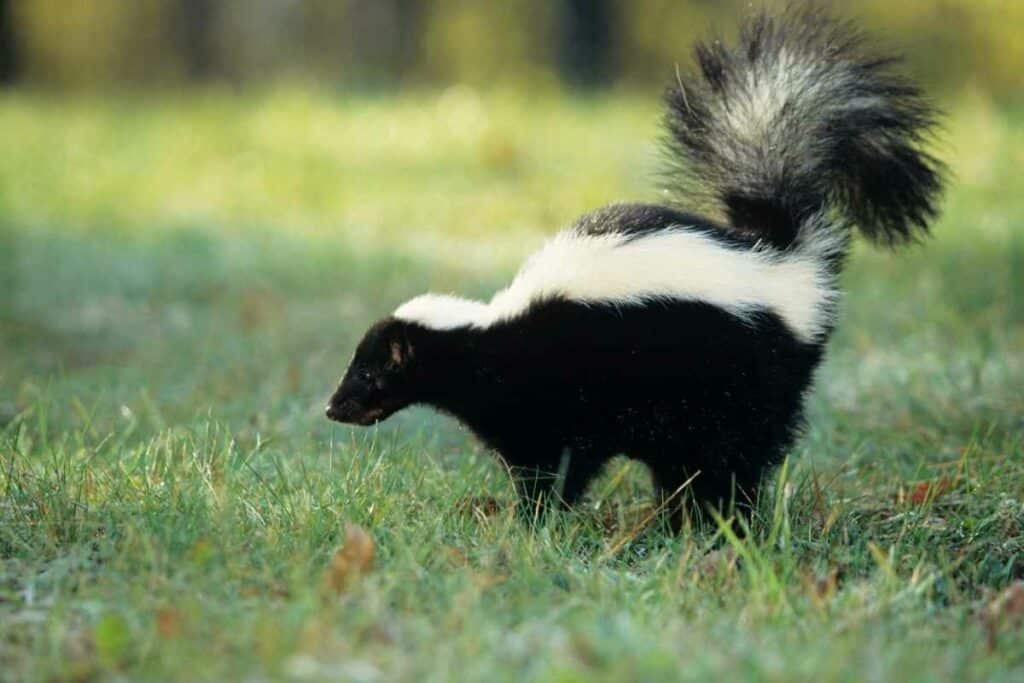
Sometimes, a skunk will have a go at a bird feeder.
Fortunately, these little guys are fairly gentle by nature. They will only become aggressive or violent if they feel they are in danger.
Even then, they’d rather repel with a spray than attack!
Most of the time, skunks will not cause any damage to bird feeders. Still, they may, rarely, try to nab a snack.
What To Do: If you’ve seen a skunk around, and suspect it may be snitching from your feeder, you can always hang it up higher. Skunks are compact, and not natural climbers – so this should do the trick!
Raccoon

There’s a reason the raccoon is (fondly) nick-named a ‘robber rat,’ and it’s not just the mask!
Raccoons are opportunistic eaters, and love to loot from trash heaps, pet food bowls, and yes, bird feeders.
In fact, raccoons are some of the main culprits when it comes to bird feeder damage. They are known to use those opposable thumbs to good effect, dismantling many a feeder!
Sometimes, a raccoon will even steal the (now-empty) feeder. There are a couple of ways that you can protect your feeder from raccoons.
2 Things You Can Do: First, you can hang it from a thin pole (raccoons require a thick pole or tree to climb, typically). Or, second, you can try pulling a wire between two trees (or from a tree to a fence, etc.) and use this to hang the feeder!
Opossum
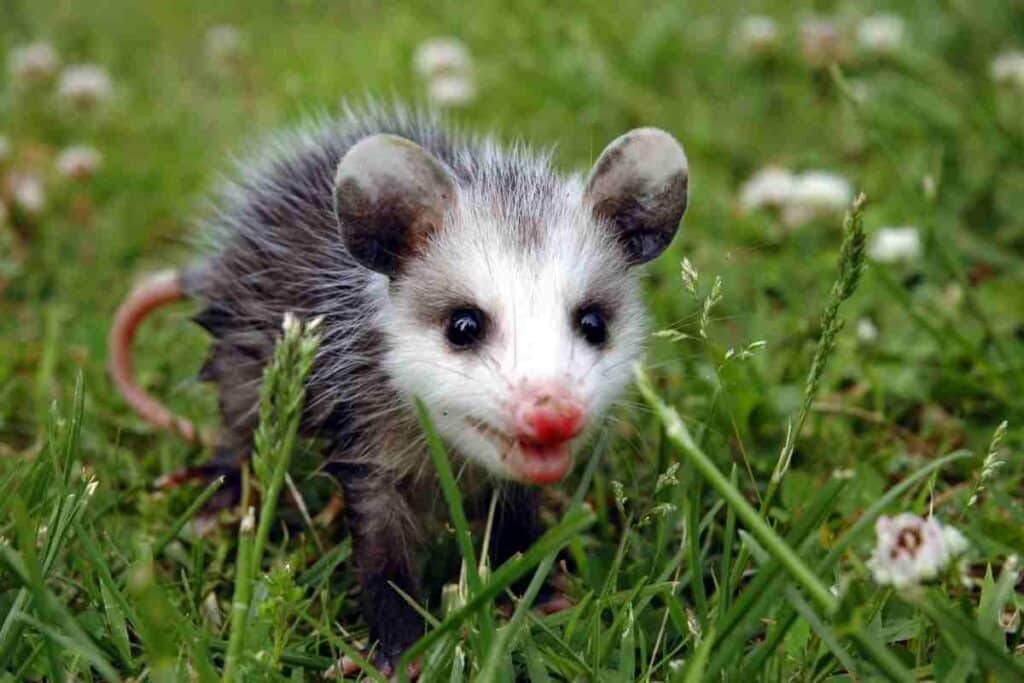
The opossum is much less fearsome than you might think.
While these long-tailed critters might hiss and act tough, their trump card is playing dead (not exactly intimidating).
This being said, they can present the same problems with a birdfeeder as a raccoon or a squirrel.
That is, they’re great climbers, they’ve got opposable thumbs, and there’s a good chance they’ll consider an accessible feeder a convenient snack.
In fact, opossums may even chew up feeders, leading you to wonder, ‘what is attacking my bird feeder at night?’ If you suspect an opossum is behind the mysterious feeder activity, you may simply want to bring your feeders in at night.
Action To Take: Or, you can try the above method of hanging them from a pole or wire. Opossums can sometimes be more agile than raccoons, however. Another effective option you can try is a motion-activated sprinkler!
Mice/Rats
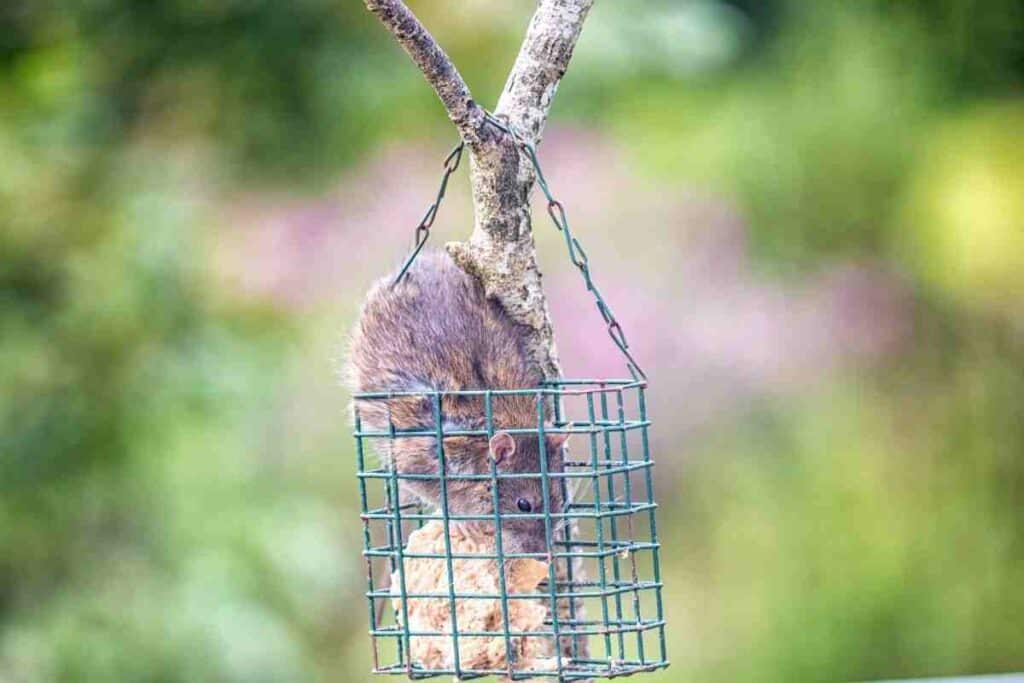
Normally, it will not even occur to mice to trouble a birdfeeder.
They tend to stick to the ground, where there are plenty of holes and other kinds of shelter.
In a tree, they feel exposed to any passing night predator, such as an owl. Instead, they scurry along the ground, from shadow to shadow.
If mice are a problem, simply avoid ground-feeding. While mice may sample loose seeds, they will not typically harm a hanging feeder! Rats, on the other hand, are more audacious.
Like squirrels, very hungry rats might plunder a bird feeder. When it comes to protecting your feeder from rats, hanging your feeder on a pole or wire should work!
Consider This: Take a look at this solution if you want to stop them.
Bears
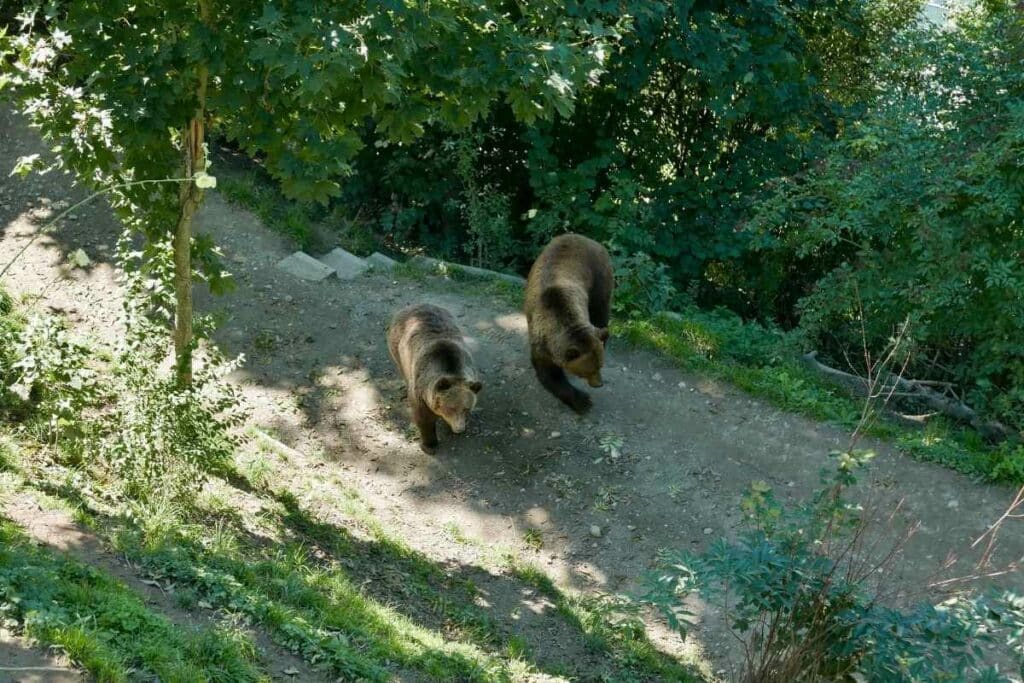
If you live in bear territory, you may be surprised to find that they’re interested in your bird feeders.
Bears have an even better sense of smell than most dogs, and they’re willing to travel for a meal.
They have been known to tear feeders apart and even carry them off – it can definitely look like an attack!
If you’ve been troubled by a bear, you may find that it’s safest to put away your feeder until hibernation season (in the winter).
Might Consider: An electric fence is another possible solution, such as you would use for livestock!
Deer
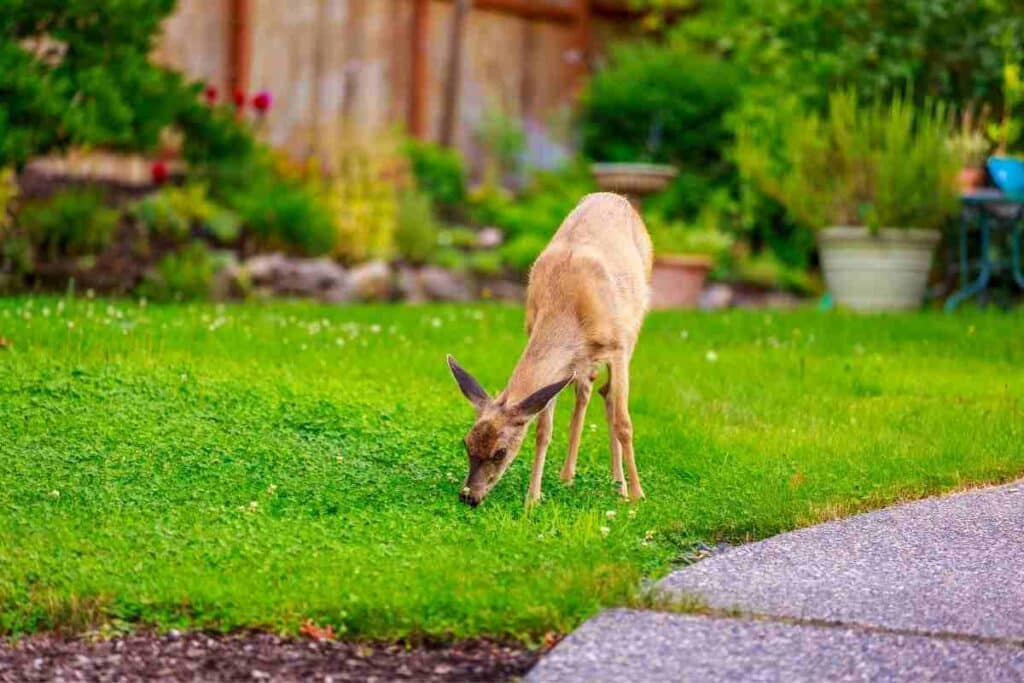
Another rather surprising bird feeder thief is the deer.
This is especially likely when other food is scarce, such as in the winter (as deer do not hibernate, and must continue to look).
While deer may only stand a few feet tall on all fours, they are as much as 6 feet tall when they rear onto their hind legs.
This makes it much easier to grab a mouthful – or three – from your feeder!
Best Strategy: When it comes to protecting bird feeders from deer, your best bet is to surround the tree or pole with chicken wire, and/or to hang the feeders up even higher!
Flying Squirrels (Nocturnal)
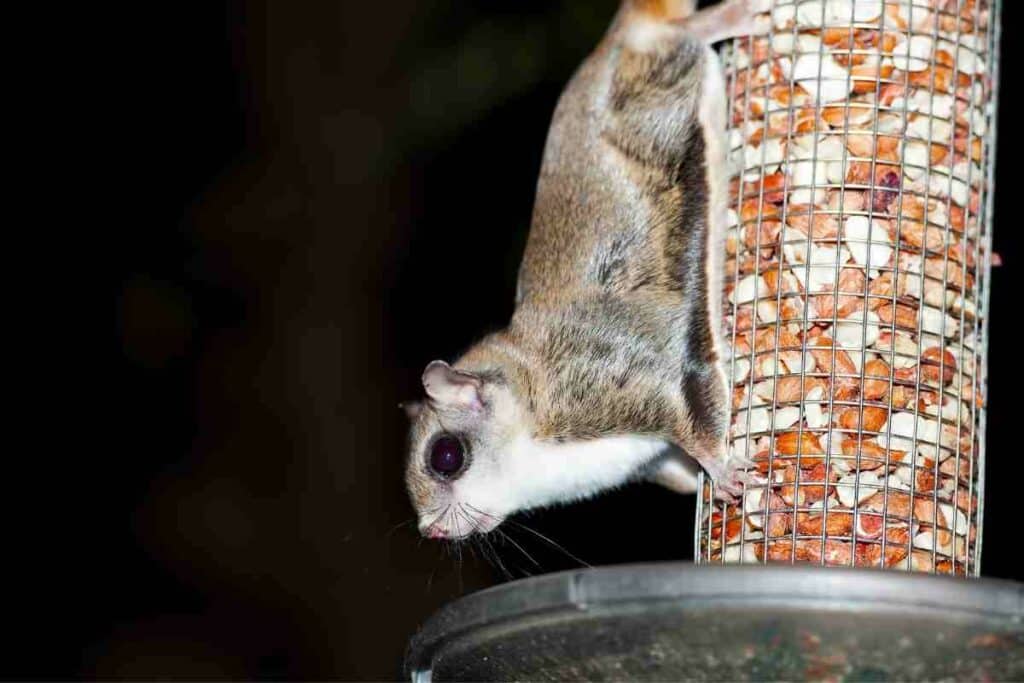
Last but not least on our list of nocturnal birdfeeder thieves is the flying squirrel.
White your average gray or red-tailed squirrels are diurnal and come out only during the day, flying squirrels are nocturnal.
Works Best: They are also excellent little climbers (and flyers), and you may find that squirrel-proof feeders are all that will keep them in check!
Final Thoughts
So, if you’ve been scratching your head, wondering, ‘what is attacking my birdfeeder at night?’ this list almost certainly has your answer.
There are also some super-effective things you can do to help protect your feeder!
Also Helpful
- How Do You Get a Baby Bird to Open Its Mouth?
- How Close Can Birdboxes Be?
- How to Attract Green Finches to Your Garden
